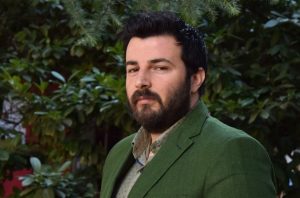
By Srdan Kosović
Editor-in-Chief of Vijesti
How would media professionals react if they saw an article claiming that a group of citizens called for a violent protest, without naming the group, without providing a single name or reference? Many would probably think that this type of call for action came from social media and cannot be tracked down to a confident original source. But then you would realise there is no such social media post only the articles containing many details about this so-called initiative published in several media outlets. None of them revealed a single clue on where they got it and who is calling for the violent protests? I guess that is called propaganda. And that is a routine practice in Montenegrin media, and not only fringe media, but those supported and endorsed by the highest political and business figures in the country.
Nowadays when independent media across the world are trying to solve complex issues that will determine the future of journalism, many Montenegrin media outlets are stuck with basic challenges such as propaganda and not even new forms of disinformation and fake news. If I want to put it boldly it is like the whole world is dealing with COVID-19, while Montenegro is back fighting bubonic plague.
One of the core issues of the Montenegrin media scene is the nature of its ownership. Many media outlets were mostly created as a side business for oligarchs that got the duty of financing media in exchange for profitable business in other industries in Montenegro. When you build a propaganda tower it is not easy to transform it to a media outlet that serves public interest, especially when the local public broadcaster has a long road ahead to establish its role that has been diminished for decades.
On the other hand, thankfully to a few independent media that survive and are by far the most read and trustworthy, Montenegro has managed to defend core democratic principles better than most regional societies, but it is far from a sustainable position to be in. Democratic potential is not to be underestimated, but global trends are not favourable especially with the looming world crisis prompted by the Russian invasion of Ukraine.
In essence, I am trying to say that you cannot deal with challenges such as post-truth and disinformation, eroding media trust, and social media run-over, “on an empty stomach”. State institutions in Montenegro are not designed to protect the society but to protect the nomenclature, and institution-trust building is not a process that lasts days or months, but years and decades. Therefore, Montenegro lacks institutional backing and authority to resolve big dilemmas, for example the issue of censorship in the media.
I think the only way, although painful, for the media to survive is to stick to hard-fought and won principles of ethical standards and procedures, no matter the cost. Otherwise, the myth will replace the truth, and those talented to create a spectacle will seize power beyond control.
Main photo by Blake Dunn on Unsplash
The Ethical Journalism Network (EJN), in partnership with UNESCO and supported by the European Union (EU), has been implementing the Building Trust in Media in South East Europe (SEE) and Turkey since 2016. In the context of a rapid digital transformation followed by a decline in the commitment to journalistic professional standards and civil society’s trust in media, the second phase of the project was launched. The role of the EJN in Phase 2 is to support the media outlets in South East Europe and Turkey to perform a self-assessment exercise of their commitment to good governance and ethical and professional standards – also called ethical audits.
READ MORE